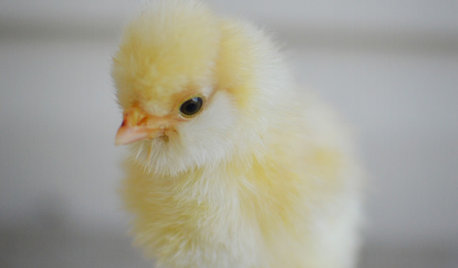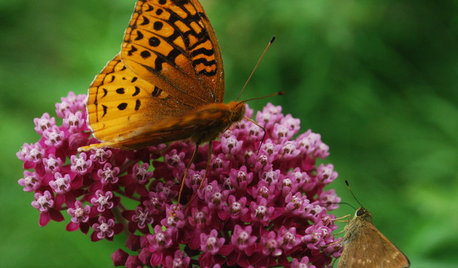buying garden predators
sarahlynnwhite
16 years ago
Related Stories

GARDENING GUIDESMake Sure You Read This Before Buying New Plants
Follow these 10 plant-selection tips to avoid buyer’s remorse
Full Story
PETSWhat You Need to Know Before Buying Chicks
Ordering chicks for your backyard coop? Easy. But caring for them requires planning and foresight. Here's what to do
Full Story
REMODELING GUIDES5 Ways to Protect Yourself When Buying a Fixer-Upper
Hidden hazards can derail your dream of scoring a great deal. Before you plunk down any cash, sit down with this
Full Story
TREESHow to Buy Healthy Trees and Shrubs
A healthy young plant with a strong form is more likely to do well in your yard. Here’s what to look for at the nursery
Full Story
GARDENING AND LANDSCAPINGWhat to Know Before You Buy Teak Outdoor Furniture
Learn about finishes, weathering, care and that age-old oil debate to get the teak furnishings that suit you best
Full Story
GARDENING GUIDESGreat Design Plant: Asclepias Incarnata for a Butterfly Garden
Beautiful swamp milkweed makes it easy to help monarchs and other pollinators in eastern U.S. gardens
Full Story
FEEL-GOOD HOMESimple Pleasures: 10 Ideas for a Buy-Less Month
Save money without feeling pinched by taking advantage of free resources and your own ingenuity
Full Story
MOST POPULAR9 Reasons to Buy a Painting
No print or poster can rival the power of an original painting, chosen by you, for where you live
Full Story
MOVINGHome-Buying Checklist: 20 Things to Consider Beyond the Inspection
Quality of life is just as important as construction quality. Learn what to look for at open houses to ensure comfort in your new home
Full Story
FURNITUREWhat to Know Before You Buy a Sectional
Learn about sizes, arm setups, seat types and more to get the right sectional for your space
Full Story








alabamanicole
sarahlynnwhiteOriginal Author
Related Professionals
70037 Landscape Architects & Landscape Designers · Havre de Grace Landscape Architects & Landscape Designers · Salisbury Landscape Architects & Landscape Designers · Wake Forest Landscape Contractors · Peabody Landscape Contractors · Battle Ground Landscape Contractors · Framingham Landscape Contractors · Glendale Heights Landscape Contractors · Kettering Landscape Contractors · La Mirada Landscape Contractors · Lake Worth Landscape Contractors · Lemay Landscape Contractors · Rockville Landscape Contractors · Santa Ana Landscape Contractors · West Covina Landscape Contractorsjnap
carol_71
bejay9_10
Violet_Z6